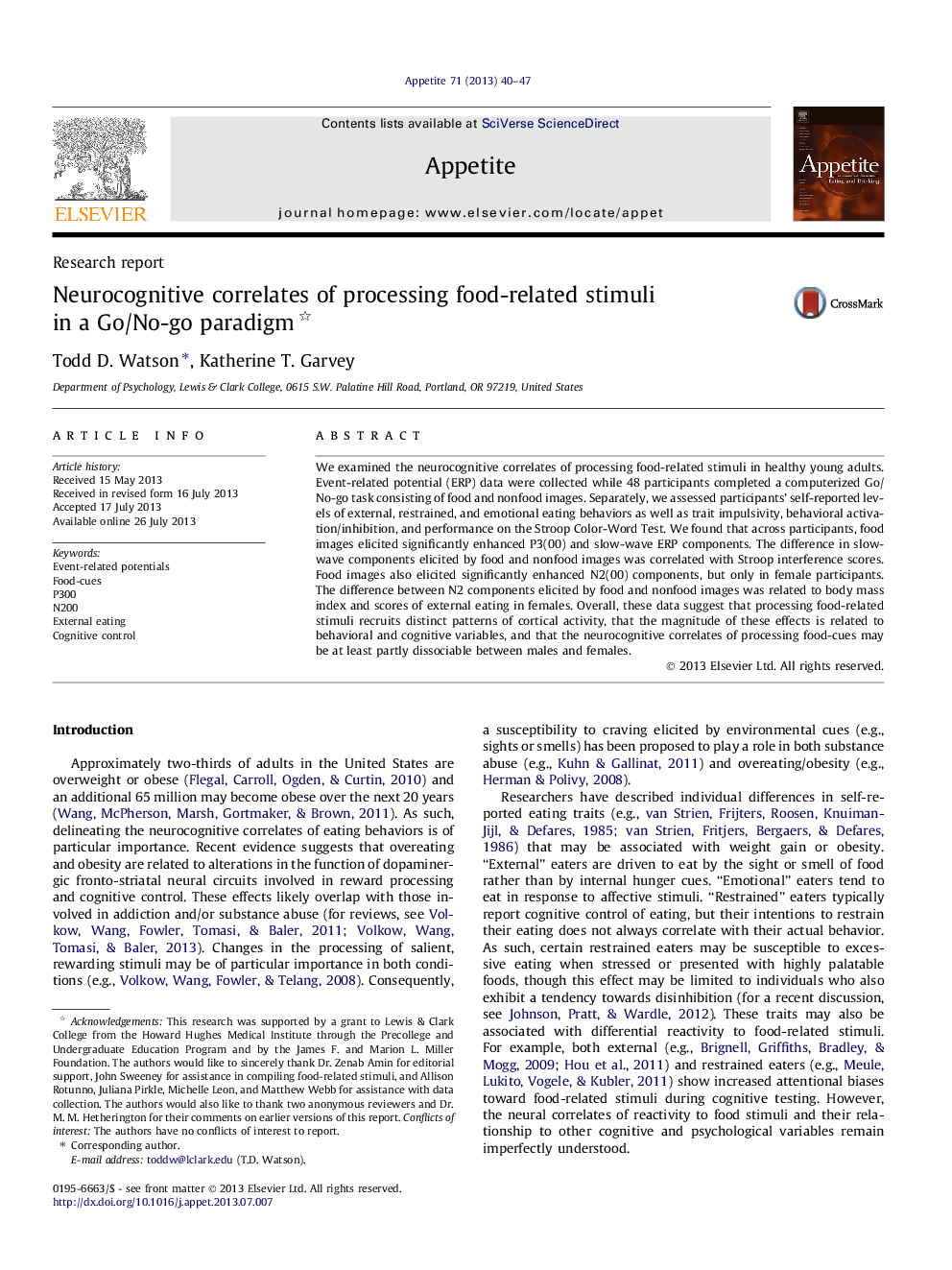| Article ID | Journal | Published Year | Pages | File Type |
|---|---|---|---|---|
| 7310647 | Appetite | 2013 | 8 Pages |
Abstract
We examined the neurocognitive correlates of processing food-related stimuli in healthy young adults. Event-related potential (ERP) data were collected while 48 participants completed a computerized Go/No-go task consisting of food and nonfood images. Separately, we assessed participants' self-reported levels of external, restrained, and emotional eating behaviors as well as trait impulsivity, behavioral activation/inhibition, and performance on the Stroop Color-Word Test. We found that across participants, food images elicited significantly enhanced P3(00) and slow-wave ERP components. The difference in slow-wave components elicited by food and nonfood images was correlated with Stroop interference scores. Food images also elicited significantly enhanced N2(00) components, but only in female participants. The difference between N2 components elicited by food and nonfood images was related to body mass index and scores of external eating in females. Overall, these data suggest that processing food-related stimuli recruits distinct patterns of cortical activity, that the magnitude of these effects is related to behavioral and cognitive variables, and that the neurocognitive correlates of processing food-cues may be at least partly dissociable between males and females.
Related Topics
Life Sciences
Agricultural and Biological Sciences
Food Science
Authors
Todd D. Watson, Katherine T. Garvey,
